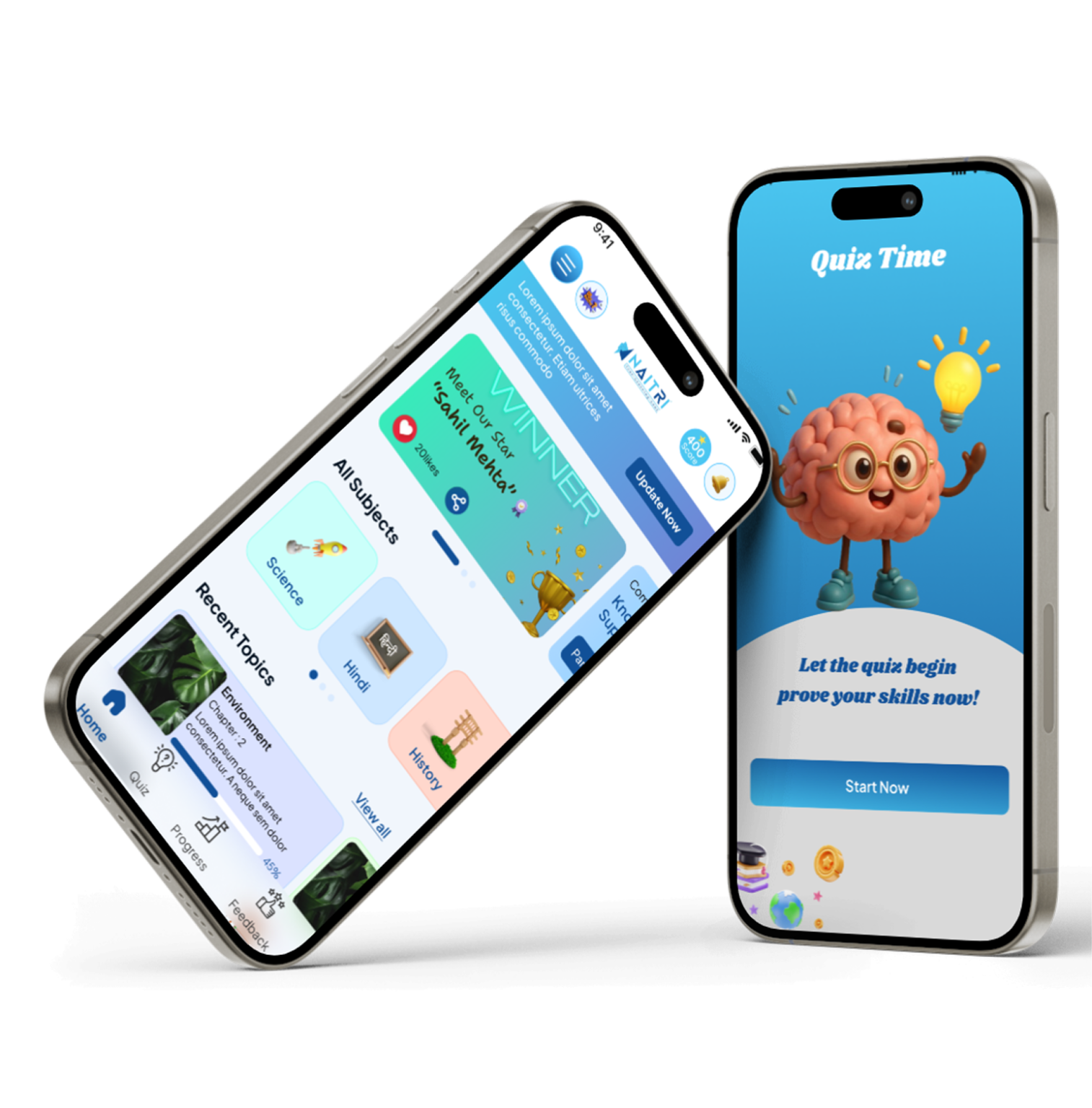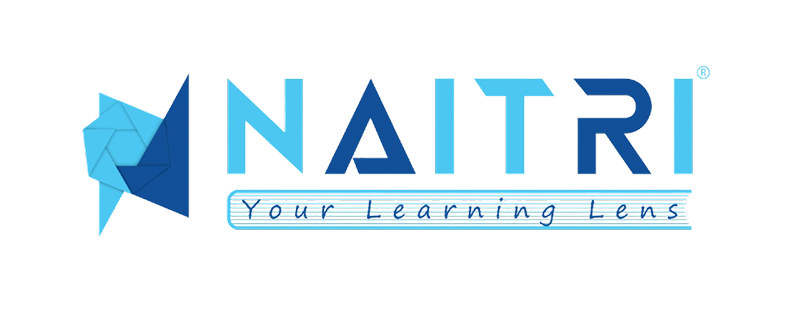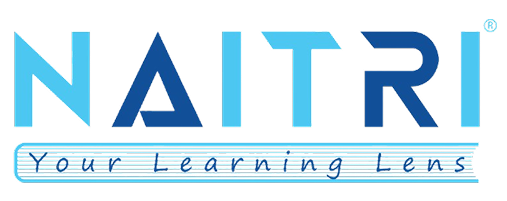NCERT Solutions for Class 9 Civics Chapter 1 – What is Democracy? Why Democracy?
NCERT Solutions for Class 9 Civics Chapter 1 – What is Democracy? Why Democracy? are essential for understanding the meaning, features, and significance of democracy in the CBSE curriculum. These well-structured answers help students grasp topics like democratic principles, the value of political equality, and the difference between democratic and non-democratic systems. Designed as per the latest syllabus, these solutions strengthen conceptual clarity and improve exam preparation. Ideal for revision and practice, they promote civic understanding and logical thinking, making them a valuable study tool for scoring well in Class 9 Social Science exams.
NCERT Solutions For Class 9 Civics – What is Democracy? Why is Democracy? – Exercise Images
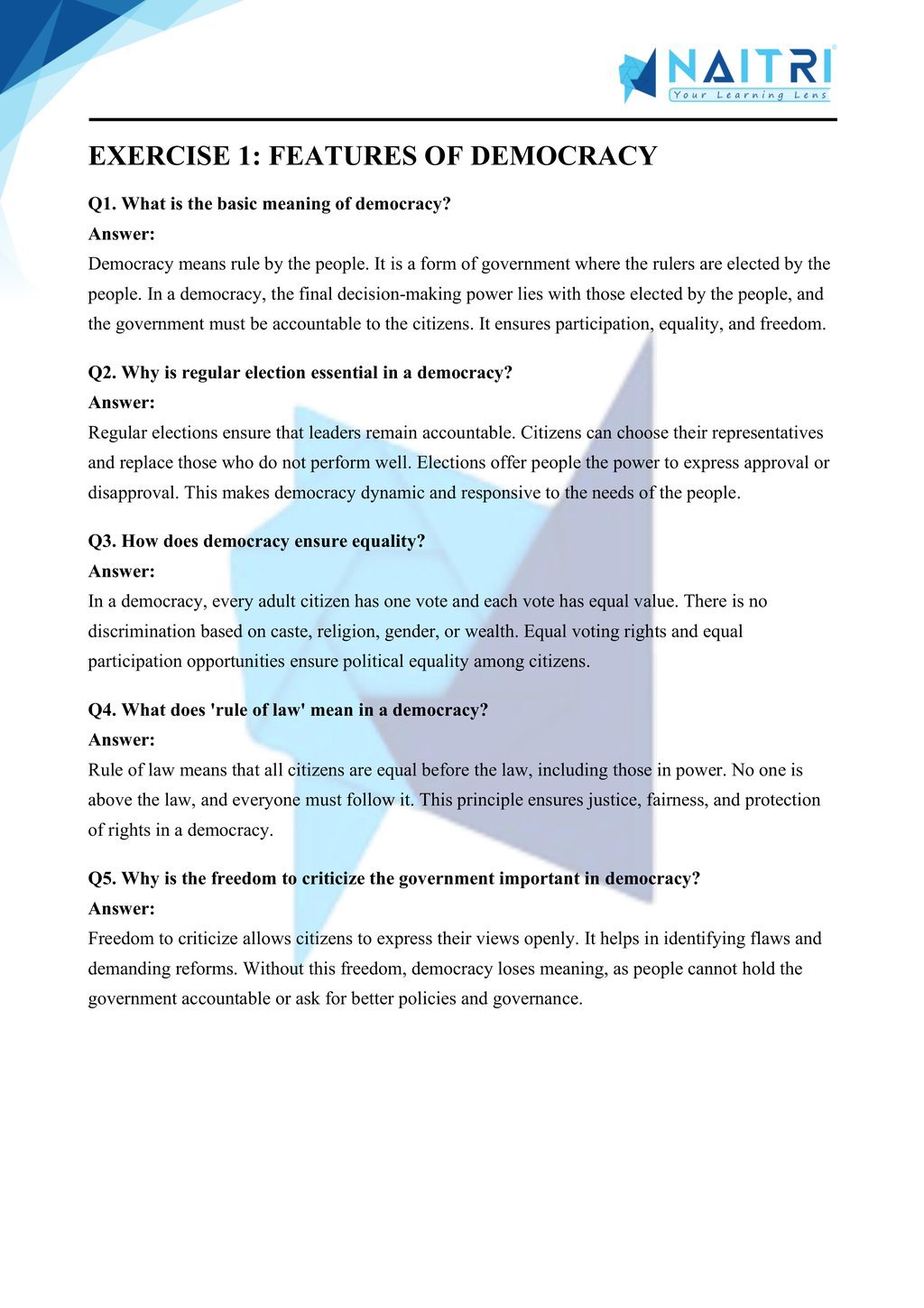
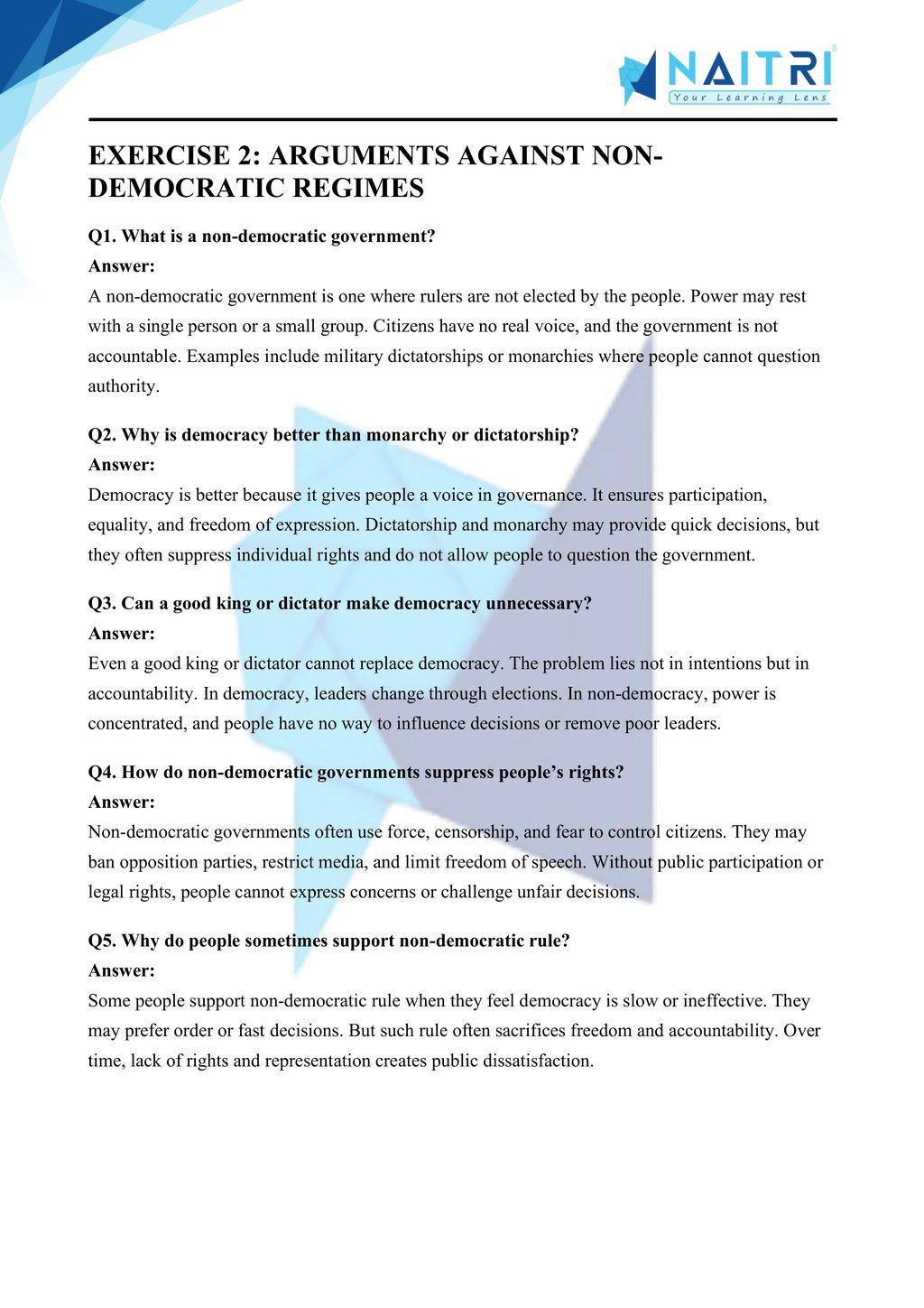
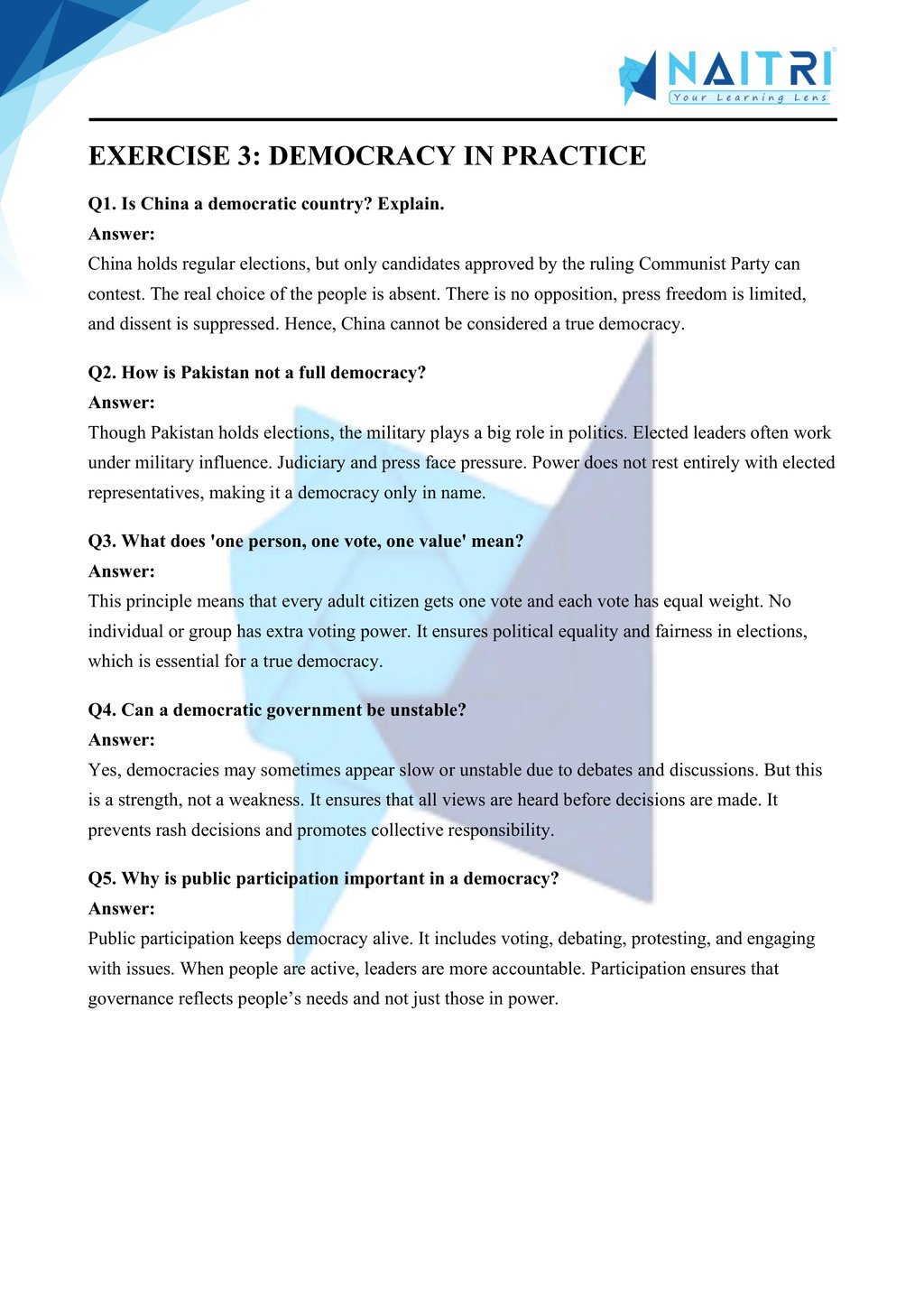
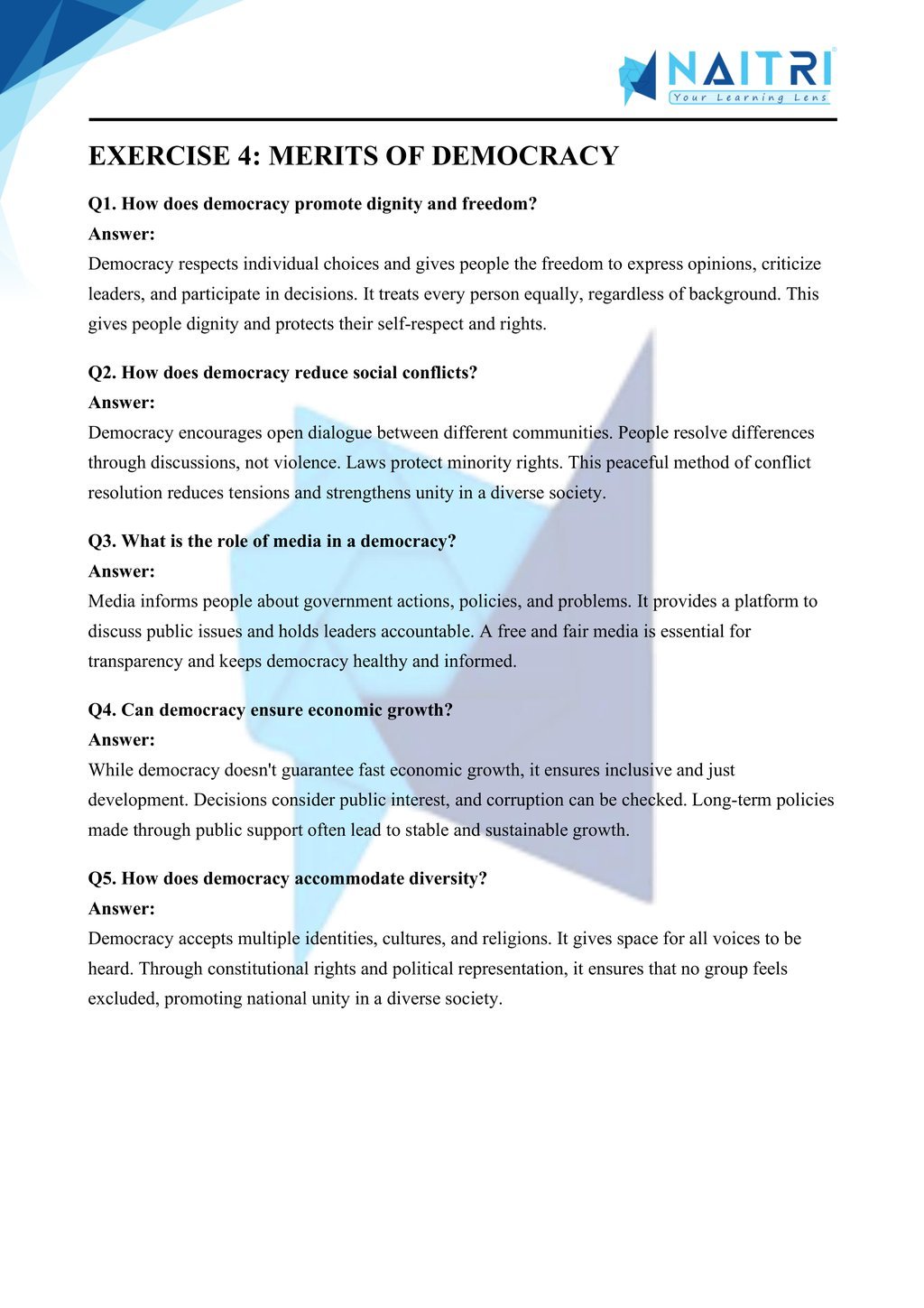
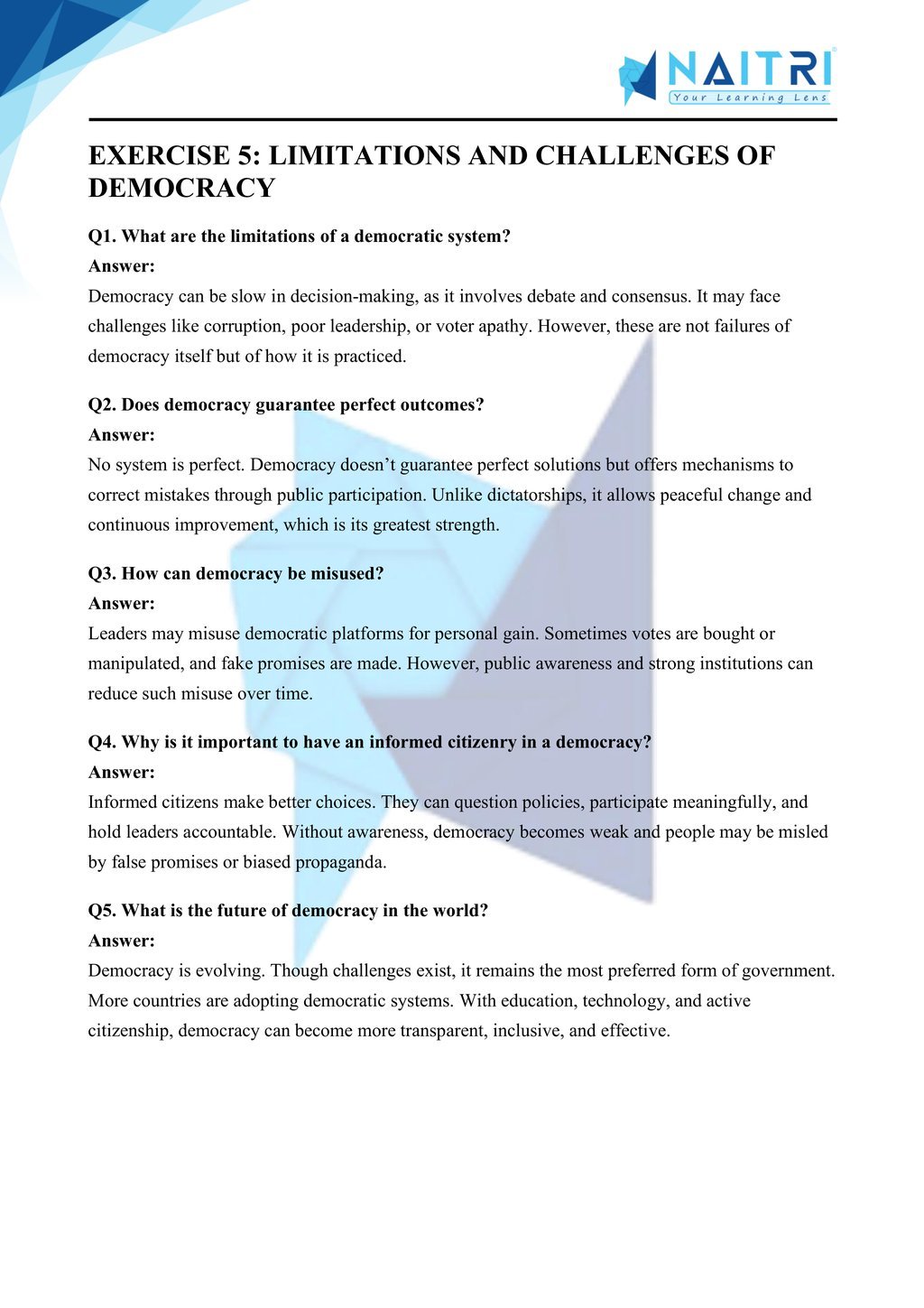
Experience Civics Like Never Before – With AR!
Understanding What is Democracy? Why Democracy? is now more exciting and immersive! With the NAITRI App, you can explore complex civics concepts through Augmented Reality (AR). See governments form, decisions made, and principles of democracy come alive — right in front of you. Our AR-powered lessons make learning interactive, 3D, and fun, helping you retain concepts better and enjoy every topic.
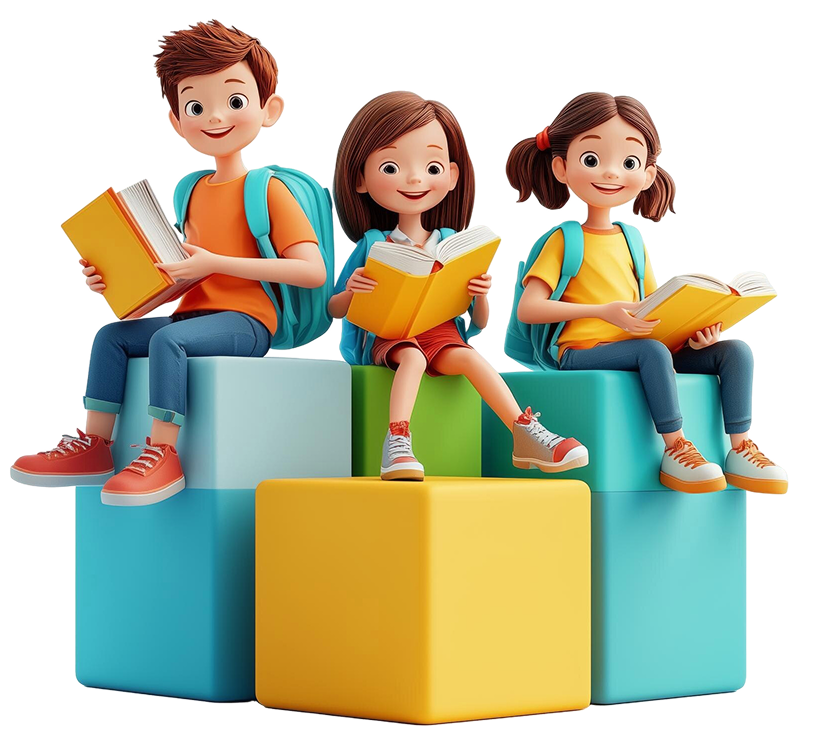
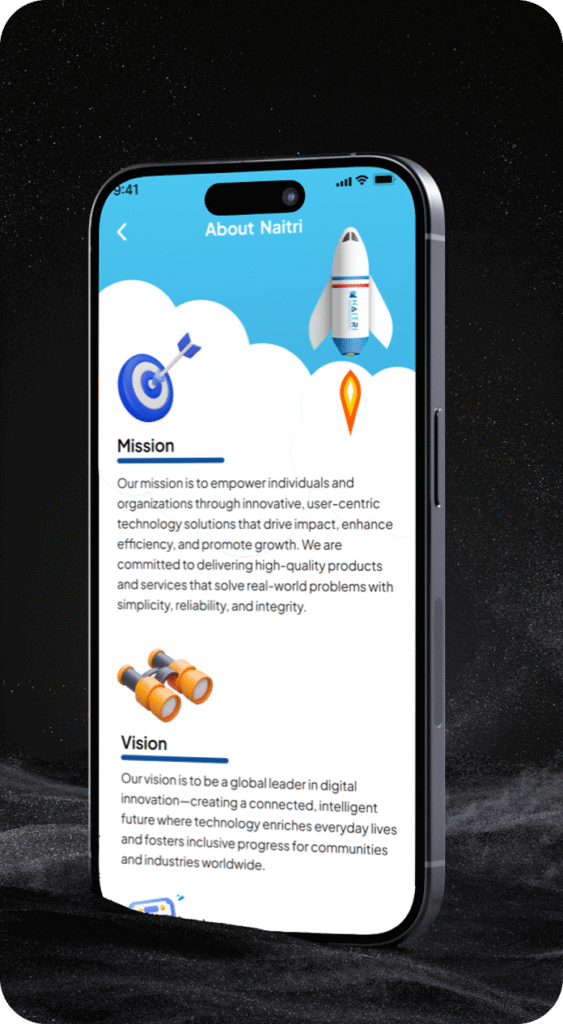

Visualize . Interact . Understand . The future of learning is here
What is Democracy? Why Democracy? – Important Questions with Answers
What is democracy?
Answer: Democracy is a form of government where people elect their rulers. The government is accountable, respects rights, and follows principles of equality and freedom.Mention two essential features of democracy.
Answer: In a democracy, (1) Free and fair elections are held, and (2) citizens enjoy fundamental rights like freedom of speech and equality before law.What is the significance of regular elections in a democracy?
Answer: Regular elections ensure that leaders are answerable to the people. It gives citizens the power to changeor continue their representatives through voting.Why is one person one vote one value important in democracy?
Answer: It reflects the principle of equality, where each citizen, regardless of background, has an equal voice in choosing their government through a fair vote.Why are democratic governments considered better than other forms?
Answer: Democratic governments promote accountability, protect citizen rights, resolve conflicts peacefully, and allow public participation in decision-making.How does democracy enhance the dignity of citizens?
Answer: In democracy, citizens are treated as equals. Everyone has the right to express opinions and influence policies, thus ensuring respect and dignity.What is the role of the rule of law in democracy?
Answer: Rule of law ensures no one is above the law. It provides a framework for justice, fairness, and protection of individual rights.Is democracy a guarantee of economic growth? Explain.
Answer: Democracy may not guarantee rapid economic growth, but it ensures fair distribution, accountability, and transparency in economic policies, benefiting all citizens in the long term.What is the difference between democratic and non-democratic government?
Answer: Democratic governments are elected and accountable to the people. Non-democratic governments rule by force or heredity, often ignoring public opinion and rights.Why was General Pervez Musharraf’s rule in Pakistan undemocratic?
Answer: He took power through a military coup, suspended the constitution, and ruled without proper elections, violating democratic principles and citizen participation.How do democratic governments handle criticism?
Answer: Democracies allow freedom of expression, enabling peaceful criticism and discussion. This helps governments improve and stay responsive to people’s needs.What is meant by political equality?
Answer: Political equality means every citizen has equal political rights—such as voting, contesting elections, and participating in public affairs—regardless of status or class.What is a direct democracy?
Answer: In direct democracy, people themselves make laws and decisions instead of electing representatives. It works mainly in small communities or regions.What is a representative democracy?
Answer: In representative democracy, people elect leaders to make decisions and run the government on their behalf, ensuring indirect participation of citizens.Why is China not considered a democratic country?
Answer: Although elections are held, China’s Communist Party restricts opposition and freedom of expression, violating key principles of free choice and political competition.Why should we value public opinion in a democracy?
Answer: Public opinion ensures that government policies reflect citizens’ needs. It encourages participation and makes the government more responsive and accountable.Can a democratic government be inefficient? Explain.
Answer: Democratic decisions may take more time, as they require debate and consensus. However, they are inclusive, stable, and widely accepted.What are the limitations of democracy?
Answer: Democracy can be slow, influenced by majority opinion, and sometimes results in inefficient leadership, but it still protects people’s rights and participation.Why is democracy not just about voting?
Answer: Besides elections, democracy includes active participation, rule of law, freedom of speech, and equal access to justice and opportunities.Why is freedom of expression important in democracy?
Answer: It allows citizens to question authority, express views, and participate in governance. This helps prevent misuse of power and ensures transparency.What do you understand by free and fair elections?
Answer: Elections where all citizens vote without fear, political parties compete freely, and counting is unbiased, represent free and fair elections.What is the role of an independent judiciary in democracy?
Answer: The judiciary protects fundamental rights, ensures rule of law, and remains unbiased, even against powerful authorities, upholding democratic values.How do democratic governments ensure transparency?
Answer: They provide citizens access to information, allow public scrutiny, and enforce accountability through laws like the Right to Information Act.Is democracy always the best form of government? Why or why not?
Answer: While democracy has flaws, it is best in ensuring freedom, participation, and rights. No other system offers such inclusive and fair governance.What is the biggest challenge faced by modern democracies?
Answer: Modern democracies often face corruption, unequal participation, and lack of awareness among citizens, which weakens institutions and reduces democratic effectiveness.
What is Democracy? Why Democracy? introduces the meaning and essential features of democracy. It explains the difference between democratic and non-democratic forms of government, using real-world examples. Students learn why democracy is considered the best form of government—highlighting principles like free elections, equal rights, and accountability. This chapter lays the foundation for understanding political participation and governance in a democratic system.
Download Naitri App
Easy, Visual Learning — Right on Your Phone
Learn with Augmented Reality! The Naitri app makes CBSE and MP Board concepts interactive and fun — even in low-resource settings. Watch lessons, complete homework, take tests, and track progress — all in one place. Anytime. Anywhere.
Available on

